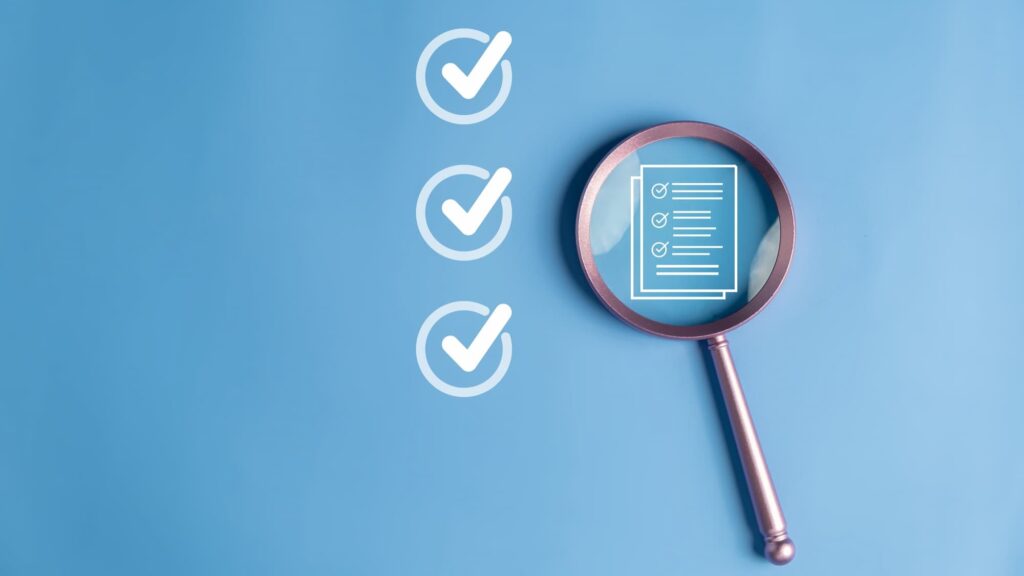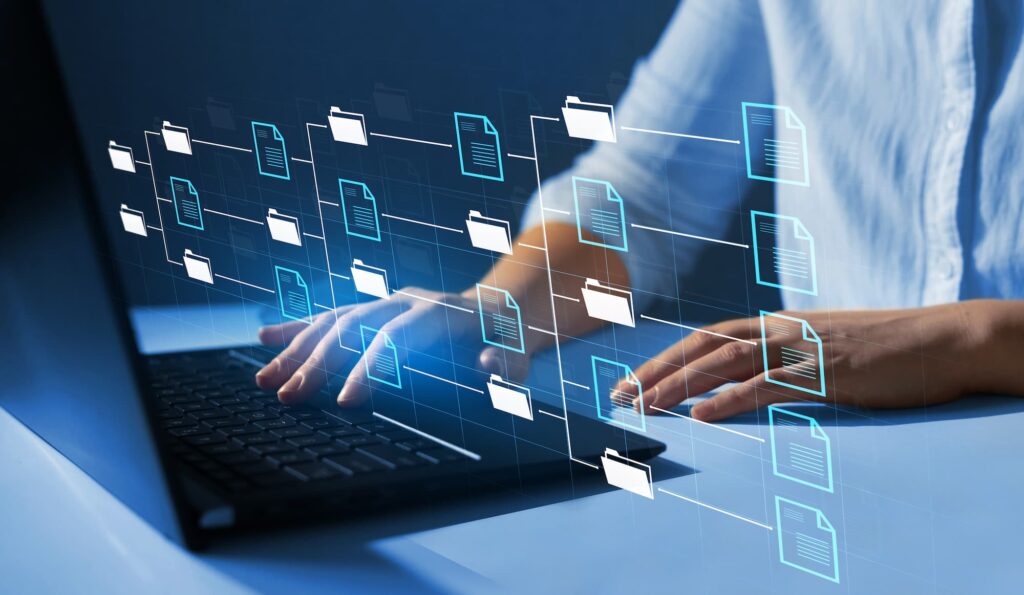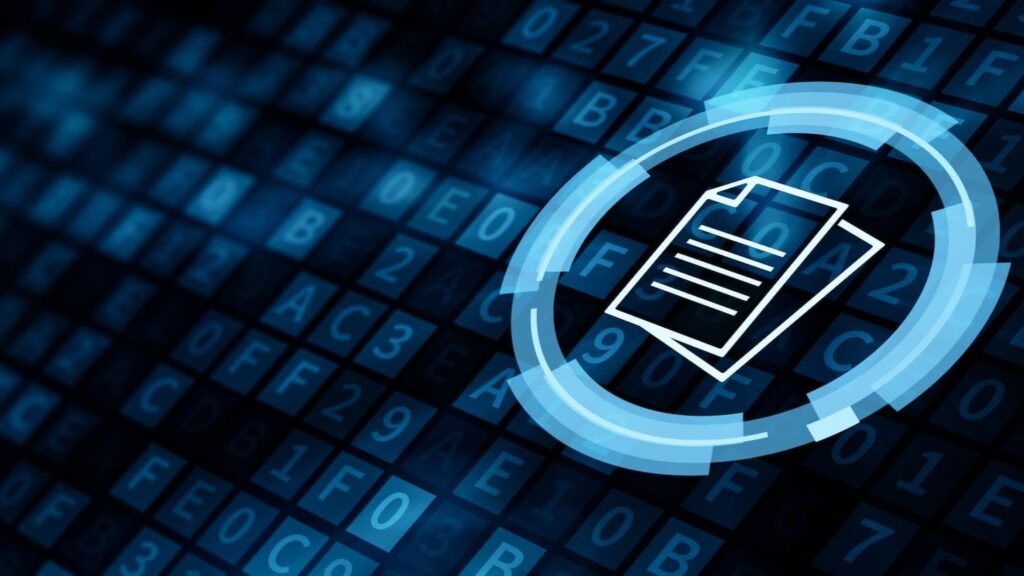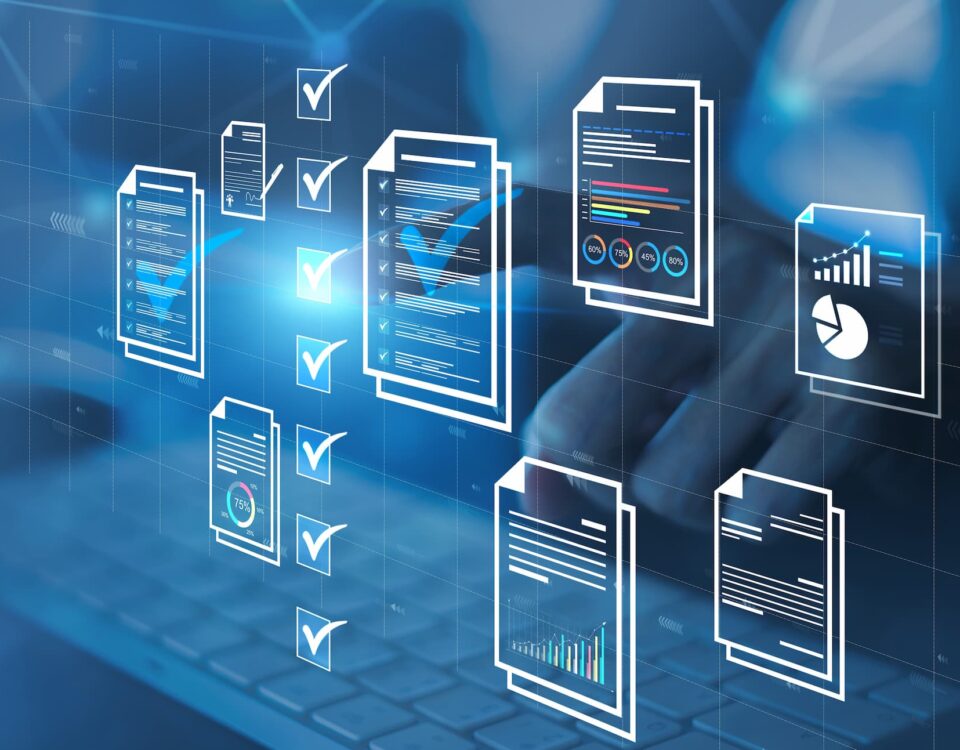
HR Information Systems
Acting as a central hub for your human resources, an HR Information System (HRIS) gives you the insights to make informed decisions on promoting positive operational change - as well as enabling you to do away with the headache of managing large HR archives for indefinite periods.
What is an HR Information System (HRIS)?
An HR Information System centralises the management of your HR functions and processes – and as well as working as a compliance tool that reduces your administrative burdens, it serves as your channel for improving employee engagement.
Completely tailorable to your company structure and culture, a HRIS helps you to promote positive internal change with data-driven decisions; by recording both HR activities and employee information, and tracking them against your KPIs.
A HR system built for you
- Easily integrates with your existing systems
- Document retention periods automatically enforced
- Audit trails keep HR files findable, trackable, and compliant
- Access controls to prevent internal breaches
Having your records digitised and stored in an HR Information System ensures that your information complies with data protection regulations, enabling you to do away with the headache of managing large HR archives for indefinite periods.
What are the Information Management Challenges in HR Departments?
HR files are sensitive legal documents which in many instances need to be kept for years after the employee has left. The Immigration Reform and Control Act require employers to retain Employment Eligibility forms (INS Form I-9) for three years after the worker is hired or one year after termination, whichever is later.
Records related to wages and hours should also be kept for at least 4 years. In addition, records required to be kept under the Employee Retirement Income Security Act (ERISA) must be retained for 6 years.
With so much legislation to deal with, records are often kept indefinitely - creating large, unmanageable archives, which create further risk of information being lost over the years.
How do Digital HR Information Systems manage HR Challenges?
Organisations can achieve significant improvements using a comprehensive HR Information Management system. Let’s take a look at some of the benefits:
Audit Trails
Automatically generated using the information in your Document Management system, Audit Trails record all the actions taken on HR Files - validating the legal admissibility of your electronic documents and ensuring that they comply with data privacy regulations.

Advanced Searching
Useful for when regulatory requirements change, HR Information Management systems allow you to update multiple documents at once by performing full-text searches, or by grouping documents with common properties together. For instance, with this system, you can quickly search all records by ‘document type’ and update their retention schedules simultaneously.

Restricted Access & Security
Digital files are safe from damage and theft, with backups ensuring that critical information is never lost. Role-based restrictions provide further protection from internal data breaches, by ensuring that only authorised employees can access certain information.

Smooth Integrations for Automation
Digital integrations allow your HR department to automate many time-consuming manual admin tasks, such as onboarding and performance reviews – freeing up time for strategic initiatives and interpersonal development.
These features can even be integrated to support workflows in other departments. For example, an HR case file can be used seamlessly in AP department workflows to streamline their own administrative work.

How do HR Information Systems improve outcomes?
When you apply the principles of digital transformation to your HR department, you unlock all the advantages of digitisation and automated workflows which leads to better outcomes.
Active Engagement
Having great accessibility to information through a HRIS allows you to react more quickly and effectively with your colleagues – helping them feel more informed and engaged, with positive knock-on effects of increased employee satisfaction, retention, and productivity.
Onboarding and Retention
Your onboarding process is critical to the employee experience and setting expectations from the outset. Automating certain functions allows you to engage new hires from the word ‘go’.
Remote
A centralised HR Information system makes documents easily accessible from all locations – improving collaboration by giving your remote employees the same resources as their in-office colleagues.
Office Culture
How staff participate in office culture is a product of how they are nurtured during development. Using HR Information systems to track growth and demonstrate company values promotes a culture of community and accountability.
The Benefits of Building a HR Information System with a Digitisation Partner
Finding a partner who understands the needs and nuances of your business processes is essential to creating a bespoke HRIS – but the best specialists will be able to build your system from the ground up, embedding their quality and security assurances into the architecture from the beginning.
What should you look for in a HRIS provider?
There are several factors that differentiate the effectiveness of a digital transformation partner. You should consider the following when choosing a partner to develop a HRIS designed to meet your specific needs and goals.
Standardisation
Do they take a holistic approach to digital solutions? Your partner should ensure that a system is able to integrate other aspects of your business by introducing an accessible, standardised, and transferable format.
Simplification
How do they convert physical to digital format? Your HRIS should be free of extra steps or complexity, and after conversion to digital, your partner should be able to recognise opportunities for streamlining your critical processes.
Continuity
Can they transform your legacy records and processes to be compatible with your new system? Your partner should give you visibility of the transformative steps that your legacy processes are about to undergo, in order to ensure a seamless transition that ensures no loss of data.
Tracking
A reputable digitisation partner exercises document control and uses audit trails to track and ensure compliance at every stage of transformation.

Security & Quality
Digital Transformation
Your HR system serves as a pillar for connecting content with other digital applications. With further integration and digital transformation, your HRIS can grow into a holistic Document Management system that improves companywide communication, productivity, and outcomes.
HRIS Related Services
eForms
eForms, or electronic forms, are digital documents that simplify data collection using input fields to standardise responses. The gathered information can generate real-time reports and power workflow automation.
More than just a paper replacement, eForms are a method of transforming paper processes into digital workflows, which have many advantages over their physical counterparts.
Invoice Processing
Automated Invoice Processing, or AIP, introduces AP software and workflow digitisation to finance departments, removing the necessity for time-consuming and error-prone manual processing.


Digital Mailroom
A Digital Mailroom service sends your inbound documents to our secure facility, allowing us to securely redistribute it as digital information throughout an organisation.
Digital Records Management
Digitising your legacy records and storing them on a digital archive allows you to involve old information in current workflows without risk of loss or damage. A Digital Records Management System is the catalyst for holistic HR information management within your organisation.
For more information on how we can help you craft your bespoke HR Information System, get in touch with us by using the form below!
How We Can Help
To learn more, please fill out the contact form:
Latest insights
Keep up to date with all the latest in Managed Workplace Services.
By submitting this form, you acknowledge that you have read and understand the Apogee Privacy Statement.
Data Privacy Policy | Cookies Policy












































